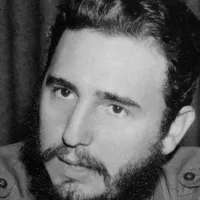Marxism, originating from Karl Marx and Friedrich Engels, is a socioeconomic analysis and political philosophy based on historical materialism. It analyzes class relations, social conflict, and social transformation through a dialectical and materialist lens. Over time, Marxism has evolved into diverse branches, inspiring numerous left-wing political movements globally. Its core tenets revolve around the analysis of societal structures through the lens of class struggle and historical development, significantly shaping the modern world's political landscape.
1905: Failure of the 1905 Russian Revolution
In 1905, the failure of the Russian Revolution led to renewed theoretical effort by Lenin and Rosa Luxemburg towards an appreciation of Marx's crisis theory and efforts to formulate a theory of imperialism.
1906: Critiques of Marx's Value Theory
In 1906, Ladislaus von Bortkiewicz wrote criticisms of Marx's value theory, alleging internal inconsistencies.
1907: Further Critiques of Marx's Value Theory
In 1907, Ladislaus von Bortkiewicz further criticized Marx's value theory, alleging internal inconsistencies.
1917: October Revolution
In 1917, the Bolsheviks seized power from the Russian Provisional Government during the October Revolution, establishing the first socialist state based on soviet democracy and Leninism.
1919: Establishment of Communist Academy and Marx-Engels-Lenin Institute
In 1919, the Soviet Government established the Communist Academy and the Marx-Engels-Lenin Institute for doctrinal Marxist study and the publication of official ideological documents.
1921: Founding of the Chinese Communist Party
In 1921, the Chinese Communist Party was founded, eventually leading to conflict with the Kuomintang over China's future.
1924: Death of Lenin and Internal Power Struggle
In 1924, with Lenin's death, an internal struggle in the Soviet Communist movement began, primarily between Joseph Stalin and Leon Trotsky, resulting in the Right and Left Opposition, due to their different interpretations of Marxist and Leninist theory.
1929: Development of Marxist Archaeology in the Soviet Union
In 1929, Marxist archaeology was theoretically developed in the Soviet Union with the publication of Vladislav I. Ravdonikas' report, which criticized archaeology as bourgeois and emphasized the adoption of Marxist archaeology throughout the country.
1932: Birth of Marxist Humanism
In 1932, Marxist humanism was born with the publication of Marx's Economic and Philosophic Manuscripts of 1844, reaching prominence in the 1950s and 1960s.
1938: Publication of The Black Jacobins
In 1938, C.L.R. James, residing in Britain, penned his notable work, "The Black Jacobins," a significant contribution from an anti-Stalinist Marxist outside the CPGB, employing the 'history from below' approach.
1946: Formation of Historians Circle in Great Britain
In 1946, a circle of historians inside the Communist Party of Great Britain (CPGB) was formed, contributing to Marxist historiography.
1949: Declaration of the People's Republic of China
In 1949, the People's Republic of China (PRC) was declared, founded on the ideas of Marx, Engels, Lenin, and Stalin.
1956: Hungarian Revolution and its Impact on British Marxist Historiography
In 1956, the Hungarian Revolution led some members of the Communist Party of Great Britain (CPGB), such as Christopher Hill and E.P. Thompson, to leave the party, though their works continued to reflect common points of British Marxist historiography.
1959: Cuban Revolution Victory
In 1959, the Cuban Revolution led to the victory of Fidel Castro and his July 26 Movement, leading to the adoption of the Leninist model of socialist development.
1966: Start of the Cultural Revolution in China
In 1966, the Maoist government in the People's Republic of China initiated the Cultural Revolution, aiming to eliminate capitalist elements from Chinese society and establish socialism.
1976: End of the Cultural Revolution and Shift in Policy
In 1976, upon Mao Zedong's death, his rivals seized power in China, leading to the revision or abandonment of many Cultural Revolution policies and the encouragement of privatized industry.
March 1985: Gorbachev Became General Secretary
In March 1985, Mikhail Gorbachev became the General Secretary of the Communist Party of the Soviet Union and sought to abandon Leninist development models toward social democracy.
1991: Dissolution of the Soviet Union
In late 1991, the Soviet Union dissolved into a series of constituent nations, all abandoning Marxist-Leninist models for socialism and converting to capitalist economies.
January 2007: Chavez Declares Himself a Trotskyist
In January 2007, Venezuelan president Hugo Chávez declared himself a Trotskyist during the swearing-in of his cabinet two days before his inauguration.
2007: Survey of American Professors
In 2007, a survey of American professors by Neil Gross and Solon Simmons indicated that 17.6% of social science professors and 5.0% of humanities professors identified as Marxists.
2008: Maoist government elected in Nepal
In 2008, a Maoist government led by Prachanda was elected into power in Nepal following a long guerrilla struggle.
2011: Publication of Hermeneutic Communism
In 2011, Gianni Vattimo and Santiago Zabala published their book "Hermeneutic Communism", discussing a new weak communism differing from previous Soviet realizations.
Mentioned in this timeline
The Union of Soviet Socialist Republics USSR existed from to...
China officially the People's Republic of China is an East...
Russia officially the Russian Federation spans Eastern Europe and North...

Books are a means of storing information as text or...

War is defined as an armed conflict involving the armed...

Fidel Castro was a Cuban revolutionary and politician who led...
Trending
28 seconds ago Sadie Sink and Noah Jupe Star in West End's Romeo & Juliet

43 seconds ago A24's 'Marty Supreme' Breaks Records; Costume Design & Cinematography Spotlighted.

1 hour ago Vince McMahon Involved in Horrifying Car Crash: Footage Released

2 hours ago KJ Simpson signs two-way contract with Denver Nuggets after Hornets trade casualty.

3 days ago Deandre Ayton Detained in Bahamas Airport for Marijuana Possession, Later Released.

2 hours ago Lakers consider lineup changes; Hachimura off bench while reactions flood for LaRavia.
Popular

Jesse Jackson is an American civil rights activist politician and...
Randall Adam Fine is an American politician a Republican who...

Barack Obama the th U S President - was the...

Ken Paxton is an American politician and lawyer serving as...

Bernie Sanders is a prominent American politician currently serving as...

Pam Bondi is an American attorney lobbyist and politician currently...
